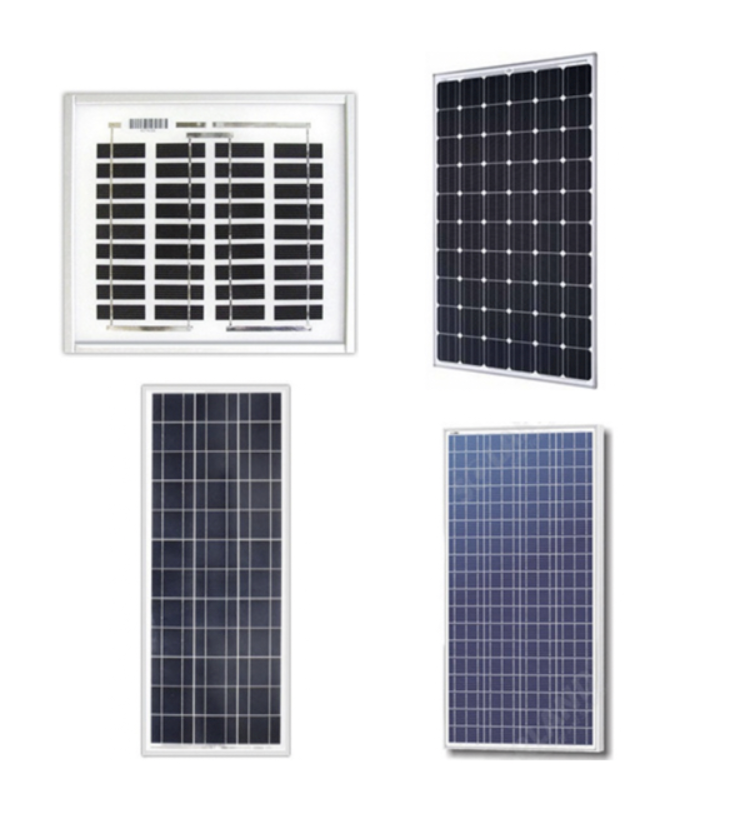Solar Panels

Solar panels are a core component of renewable energy systems used to generate clean, direct current (DC) electricity from sunlight. At the heart of each panel are photovoltaic (PV) cells, semiconductor devices that convert solar energy into electrical power. This generated DC electricity can be used immediately, stored in battery systems for later use, or converted into alternating current (AC) using an inverter for compatibility with standard electrical systems.
Solar panel systems are used across residential, commercial, and industrial applications, supporting on-grid, off-grid, and hybrid energy configurations. From small portable panels designed for remote or off-grid installations to large-scale rooftop and ground-mounted arrays, solar technology offers flexible solutions for a wide range of energy needs. Building-integrated photovoltaic systems also allow solar panels to be incorporated into architectural designs while maintaining aesthetic and functional requirements.
Beyond environmental benefits, solar energy systems can help reduce long-term energy costs and dependence on traditional power sources. As solar technology continues to advance and become more accessible, solar panels play an increasingly important role in powering homes, businesses, vehicles, and infrastructure with reliable renewable energy.
FAQs
Q: How do solar panels generate electricity?
Solar panels use photovoltaic cells to convert sunlight into direct current (DC) electricity through a semiconductor-based process.
Q: Can solar panels replace traditional energy sources?
Yes. High-quality solar panels can generate sufficient electricity to replace or supplement traditional energy sources, especially when paired with battery storage systems.
Q: What is the typical power output of a solar panel?
Most modern solar panels produce between 250 and 400 watts per panel, depending on size, efficiency, and design.
Q: Can solar panels be used in off-grid applications?
Yes. Solar panels are commonly used in off-grid systems when combined with batteries and charge controllers to store energy for use when sunlight is unavailable.
Q: What type of battery is typically used for solar energy storage?
Lithium-ion batteries are the most commonly used energy storage solution due to their efficiency, lifespan, and energy density.
Why Buy Solar Panels from RSP Supply
RSP Supply offers a reliable selection of solar panels designed to support residential, commercial, and off-grid renewable energy systems. Our solar solutions are selected to meet performance, durability, and system compatibility requirements across a wide range of applications. Customers rely on RSP Supply for technically sound products that support efficient energy generation and long-term system reliability.

